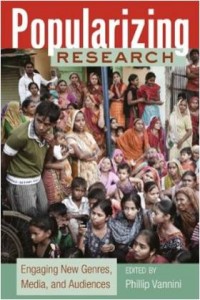
Pictured: Tom Kane, who plays 'Flip', Rufus' young friend, and Harry Kershaw as 'Rufus'.
Rufus Stone: a film about love, sexual awakening and treachery (30 minutes).
The Making of Rufus Stone: (7 minutes).
Tuesday 28 February
12:00 noon: Complimentary lunch
12:45- 13:45: Screening of films
Weymouth House 240 & 241
Talbot Campus, Bournemouth University
A screening of the short film Rufus Stone is open to BU students, staff, the public and takes place on Tuesday 28 February at 12:45 in our Hollywood-style Screening Room on BU’s Talbot Campus. Complimentary lunch will be available beforehand from 12 noon. You must register to attend at: diversity@bournemouth.ac.uk
Rufus Stone stars William Gaunt, familiar to many from his appearances in the TV sitcom, No Place Like Home and Elle Magazine’s ‘Star in the Making’ Harry Kershaw, both playing Rufus at different periods in his life story.
There will be time for discussion following the screening of the films with
Dr Kip Jones Executive Producer, Reader in Qualitative Research, HSC and a behind the scenes look at The Making of Rufus Stone with Trevor Hearing, The Media School.
As featured in The New York Times during its world premiere in 2011, Rufus Stone is a film which draws its story from three years of in-depth research to give an account of being gay and growing older in the British countryside. The film is now available for wider audiences to enjoy in Dorset and Hampshire as part of BU’s annual Lesbian, Gay, Bisexual, Transgender (LGBT) History month, celebrating the lives and achievements of the LGBT community.
Rufus Stone is an innovative approach to a research three-year research project, ‘Gay and Pleasant Land?’ led by BU academic, Dr Kip Jones. The project, about positioning, ageing and gay life in rural South West England and Wales, is a work package in the UK-wide New Dynamics of Ageing Project ‘Grey and Pleasant Land?: An Interdisciplinary Exploration of the Connectivity of Older People in Rural Civic Society’, funded by Research Councils UK.
Directed by award-winning Josh Appignanesi and produced by Parkville Pictures, the stories which form the foundation of the script for Rufus Stone are entirely based upon research undertaken by Dr Jones and his team from BU’s School of Health and Social Care (HSC) with the assistance of a citizens’ advisory committee. The film’s ‘fictional’ story was created over time using composite characters and situations, all uncovered in the ‘Gay and Pleasant Land?’ research project, through in-depth biographic life story interviews, focus groups, and actual site visits to the rural locations where older gay or lesbian citizens were living.
“Our hope is that the film will dispel many of the myths surrounding ageing, being gay and life in British rural settings,” said Jones, in his role as Executive Producer of Rufus Stone. “The film renders poetically the way in which our memories morph and play with our histories, much as dappled sunlight reveals, then conceals, an idyllic landscape”.
Rufus Stone the movie weblog
Rufus Stone the movie on facebook
 Following Rufus Stone‘s world premiere at BU in November 2011, Trevor Hearing (BU Media School), Ross Hillard (composer) and Kip Jones (BU Media School & School of Health and Social Care) have now produced a short trailer that captures both the story of the film as well as the beauty of its cinematography in two and a half minutes. For previous blog posts about Rufus Stone, click here.
Following Rufus Stone‘s world premiere at BU in November 2011, Trevor Hearing (BU Media School), Ross Hillard (composer) and Kip Jones (BU Media School & School of Health and Social Care) have now produced a short trailer that captures both the story of the film as well as the beauty of its cinematography in two and a half minutes. For previous blog posts about Rufus Stone, click here.













 Conversation article: London Marathon – how visually impaired people run
Conversation article: London Marathon – how visually impaired people run Horizon Europe News – December 2023
Horizon Europe News – December 2023